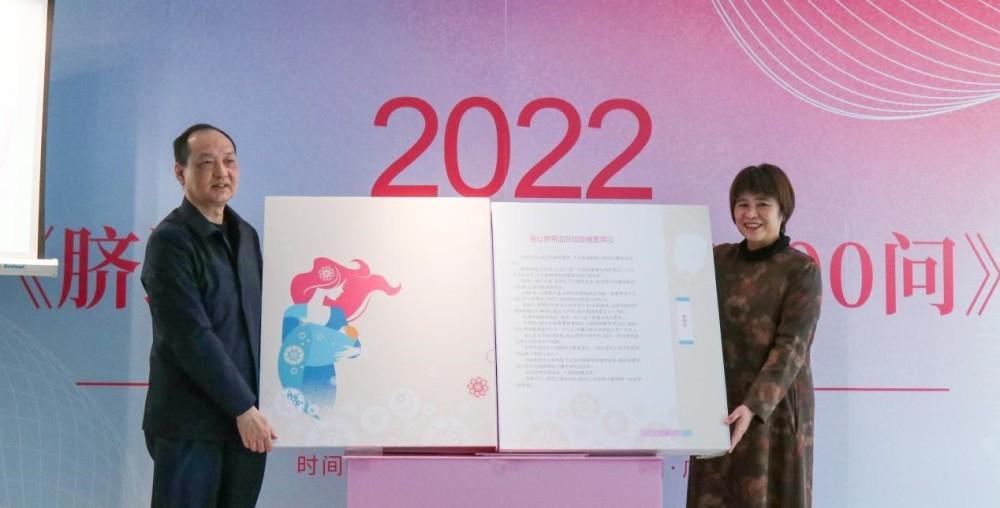On February 17, scientists at Well Cornell Medical Center in the United States announced that an AIDS patient may become the third person in the world to be cured of AIDS after receiving a cord blood transplant.
Can cord blood transplants really "cure" AIDS? On February 26, at the launch ceremony of the first umbilical cord blood science question and answer book in China, "100 Questions on Umbilical Cord Blood Science Popularization", Professor Fang Jianpei, chief physician of the Department of Pediatrics of Sun Yat-sen Memorial Hospital of Sun Yat-sen University, responded that the particularity of the case is that the donor's cord blood itself has a related genetic mutation against AIDS, and the AIDS patients themselves are leukemia patients and need to receive hematopoietic stem cell transplantation, thus broadening the application field of umbilical cord blood.

The expert editorial team unveiled the "100 Questions of Umbilical Cord Blood Science Popularization"
According to media reports, U.S. researchers announced that a middle-aged woman was diagnosed with HIV in 2013 and diagnosed with "acute myeloid leukemia" four years later. After that, she underwent a therapy called haploid cord blood transplantation. This method was developed by a team at The Will Cornell School of Medicine, where patients receive umbilical cord blood from a donor through a transplant that contains HIV-related mutations, and then the patient receives an adult stem cell transplant. The research team said cord blood stem cells are more adaptable than adult stem cells, but can produce a shortage of cells, and stem cells from adult donors can compensate for this problem.
Professor Fang Jianpei pointed out that the above cases also fully demonstrate the great potential of cord blood in the future application field. Cord blood is one of the main sources of hematopoietic stem cells, and the protection and retention of cord blood resources has become a consensus in the medical community. As of 2021, the clinical application of cord blood in mainland China has exceeded 24,000 cases, bringing hope for the rebirth of many families. But there are still many people who do not know that cord blood can cure diseases and save people, resulting in countless newborns being discarded at will.
Professor Fang Jianpei answered reporters' questions
In order to let the public have a comprehensive and objective understanding of cord blood, the Guangdong Maternal and Child Health Association and the "China Family Doctor" magazine jointly compiled and published "100 Questions on Umbilical Cord Blood Science Popularization", invited Professor Liu Kaiyan, chairman of the Cord Blood Application Professional Committee of the China Maternal and Child Health Association, deputy director of the Institute of Hematology of Peking University, as the general consultant, and Professor Fang Jianpei, chairman of the Cord Blood Application Professional Committee of the Guangdong Maternal and Child Health Association and chief physician of the Department of Pediatrics of Sun Yat-sen Memorial Hospital of Sun Yat-sen University, as the special editor-in-chief. Zou Wenxia, chairman of the Midwifery Professional Committee of Guangdong Maternal and Child Health Association and chief nurse of obstetrics and child health hospital of Guangdong Provincial Maternal and Child Health Hospital, served as special deputy editor-in-chief.
The expert editorial team combines personal rich clinical and research experience, consults domestic and foreign application cases and research literature, collects umbilical cord blood related laws and regulations, and visits hospitals, cord blood banks and other institutions in depth to collect the voices of 200,000 mothers and compile content. In line with the attitude of being responsible to the public, in response to controversial issues, the editorial team repeatedly deliberated and verified and argued, took nearly a year, revised more than ten times, and created authoritative popular science books.
Is self-storing cord blood valuable? This is the most concerned issue for many expectant parents. Question 12 of the article states that if a child is born with cord blood stored and suffers from related diseases in the future, this cord blood can be used for treatment. In addition, the value of self-saved cord blood is also reflected in the fact that cord blood may come in handy when siblings or family cousins, cousins, and parents of children suffer from related diseases. Compared with finding a suitable match in the vast sea of people, the probability of parents, siblings and children's cord blood matching will be higher.
In the future, with the development of medicine, the application range of cord blood will be broader, and people will be able to use it to treat more diseases. It is understood that there are currently nearly 1,000 clinical studies related to cord blood that have been registered on the official website of the National Institutes of Health (NIH) management and settings worldwide. In Guangdong, experts are also constantly exploring the development of cord blood for the treatment of autism, cerebral palsy, type I diabetes and other diseases.
"This is the first popular science question and answer book in the field of cord blood in China." Professor Fang Jianpei expressed the hope that through this book, the knowledge of cord blood will be passed on to the vast number of readers, including those who pay attention to health and those who need to treat related diseases with cord blood, so that the public can have a correct understanding and understanding of cord blood.
[Reporter] Yan Huifang
[Correspondent] Chen Zixian
【Author】 Yan Huifang
Healthy living circle